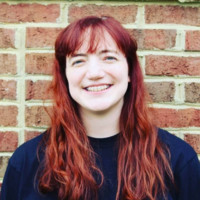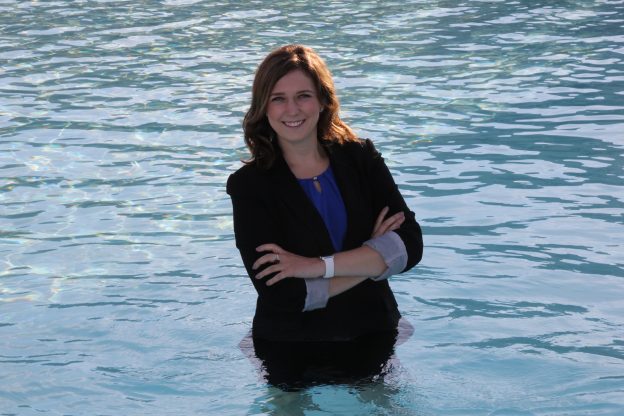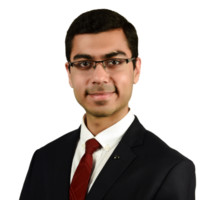Third and final of our recent graduate spotlights is on Economics major and Entrepreneurship minor, Christina Townsend. Currently, Christina runs her own business, Illumination Consulting, and serves as its Chief Creative Officer. She was highly involved at Miami as a mentor and tutor for the Clubhouse kids’ program, a leader of Creativity City for WCIW, and lead TA for ESP 321 for many semesters. She shared with us some of her insights from being a servant leader and creative rockstar in the Entrepreneurship program.
Tell us a little about your role; what do you do day-to-day?
I am the founder of Illumination Consulting, and currently its sole member. I started it last June as I finished my degrees from Miami. The mission of Illumination in its simplest form is to provide branding and marketing assistance to small businesses that have limited resources but a need for large growth. My day-to-day job is constantly evolving, which is part of what keeps it interesting. As the only person in my company, I am fully responsible for and accountable to myself. I manage all client relations, do big picture strategizing, and perform the more tactical daily tasks needed to get my client’s company from point A to point B. Sometimes this means brainstorming sessions of how to bring new leads to the company and convert them, while other times it means building a social media graphic or analyzing a Google Ads test. I usually do not know what exactly my day will look like when I wake up until I check my Trello boards and Slack messages.
What experiences through the ESP program prepared you for the professional world?
I spent a lot of my time in the entrepreneurship program working with clients. The class that most closely translates to my current work is ESP 321, which is Mark Lacker’s Agile Marketing & Scrum class. I took the course during my second semester junior year, then acted as the TA for it in the three semesters following. In that class, we practiced Agile methodologies to work more effectively as a team, we learned digital marketing tools, we discovered how to be adaptable and scrappy in a setting where we needed high growth with low resources, and we quantified repeatable strategies that a client can put into place immediately. As a TA, I also gained experience in peer leading/coaching and learned on-the-spot how to put out fires as they arose. I was able to work alongside Mark to develop and adjust the course as we went, leading teams to success and ultimately providing great value for the clients. While I’m equally grateful for other courses, such as Friedman’s 351 and 461 creativity courses and Beth Troy’s Advancing Women in Entrepreneurship special topic that also played a role in shaping me into who I am today, my work with Mark prepared me most for where I am at the moment.
What skills did you gain from ESP that you have continued to use after graduation?
Agile project management and creative brainstorming are the tools I use the most. These are built into how I work in general, especially with clients. A current example of both includes my close work with a client in the aftermath of COVID-19. The quarantine has forced us into an interesting position where holes in our previous marketing efforts are being revealed and a need for new, innovative ideas is growing. Two of the biggest pieces of my experience in the entrepreneurship program that have become essential are my Agile Marketing and Creative Problem Solving expertise. Both processes are vital to being adaptable in the current environment. As soon as a need for new ways of reaching prospects and turning them into leads was brought to me, I started leading two important efforts. One is a re-emphasis on Scrum Methodologies (Agile Management) for how we structure our workload. The client asked me to run our project boards and daily stand-ups to assure full transparency in our work, as well as daily progress on the most important projects. In addition, I am heading a brainstorming focus group to bring outside, third-party perspectives into our marketing efforts. Everything from the people I am inviting to the questions I’ll ask them to the development and implementation strategies I’ll use afterward stems from my knowledge of and experience with creative problem solving gained from the Institute.
What about the transition to the professional world was surprising or challenging?
For me, the most challenging part has been holding myself accountable and building my own schedule. I am in a somewhat unique situation, where I did not go get a “normal” 9-5 job. I don’t have a supervisor. I’m not reporting to anyone and no one is reporting to me. I don’t even use an office building, I just work from home. So, even before the current craziness with COVID-19, I was completely responsible for my workdays, trying to balance the post-grad transition to adulthood with new duties to my clients. The amount of work I get done in a day is solely reliant on me. Even if my workload is light on a specific day because I am in-between projects with clients, it is still on me to seek out the work I need to keep my business and life running. The hardest part of running the ship solo for me has been the lack of built-in connection with others. Because this is important to me and not organically part of my job currently, I have to be intentional about creating it for myself.
What advice would you give underclassmen in the Entrepreneurship program?
Take your work seriously, but don’t take yourself too seriously. Both in and out of the Institute, you will have countless opportunities to do work that is exciting and makes an impact. Take it seriously. Don’t blow off classes or projects. Instead, hold yourself to a high standard and be accountable to yourself in doing work that matters to you. We oftentimes as students take a passive approach to our education and simply check off boxes for our assignments, but you will be a better person for the parts of your time at Miami that you approach actively. That being said, it’s easy to get caught up in the stress and overwhelm ourselves. All students, but especially those with an inclination toward fields like entrepreneurship, are at risk of burnout. It’s a very real problem that most of us face at some point in our college careers, including those who pridefully assume they never will. My best advice for avoiding it is while you should take your work seriously, you should also leave room for fun/relaxing/self-care/etc. I am always at my top performance as a student, employee, team member, consultant, and person when I am balancing my drive to work hard with my mental and emotional health needs. If you aren’t able to find enjoyment, laughter, excitement, and fulfillment in your days, you are likely prioritizing your workload over yourself, and I would highly recommend an internal audit of your life to see where there is room for a little more play.
What is a fond memory you have from your time in Entrepreneurship?
I have so many, it’s hard to choose. I genuinely loved my time in the program and believe it shaped me into a stronger, smarter, all-around better human. One memory that sticks out to me, however, is from last spring when I volunteered at Social Innovation Weekend. Most of the Saturday, I was running around getting supplies for people or manning the help desk to make sure no one needed anything. But when about 8pm or so hit, I decided to walk around to the rooms to check on teams and see what they were working on. One group in particular stood out. They were looking at ways to improve the lives of kids who come from homes affected by opioid addiction, in order to break the cycle and help empower them to brighter futures. As I sat in with two faculty members (Mark Lacker and Todd Stuart) giving feedback on their idea, I came to a realization that I was a thought leader on the subject. For most of my college career, I either volunteered at or led a children’s ministry through my church that worked with underprivileged kids in the Oxford area. We met with them once a week for tutoring and mentoring, oftentimes acting as one of the most stable, consistent pieces of their lives. Multiple of the children I had worked closely with over the years came from bad home lives, including ones where drugs were present, parents were in-and-out of jail, and custody was changing constantly. I shared my experiences with the team and gave input on what types of programs, both academic-related and otherwise, would most benefit children in those circumstances. I was able to tell stories from one of the most important pieces of my life to provide insight into the deeper needs and desires of the kids this team was targeting. When we left the room, Mark and Todd both complimented me on my use of personal experience and expertise on the subject. What stands out most, though, was not me being able to help those students. It was a connection I had never fully made before of truly understanding where the intersection could be between the mission-driven work I’ve always been passionate about and the entrepreneurial education I was pursuing. It has even encouraged me to re-imagine my future and how I can continue to use my entrepreneurship degree moving forward to make a positive impact.





